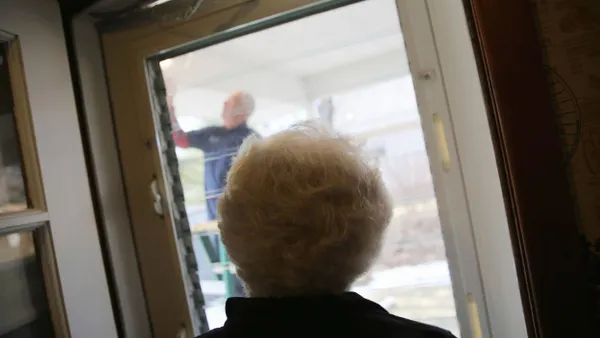Dive Brief:
- A bill to expand energy efficiency goals in Maryland is sitting on Gov. Larry Hogan's desk, but there is still no word on how the governor will act. However, pressure is mounting from business groups in favor of the clean energy measure.
- The bill would extend the state's EmPOWER program, codify efficiency goals set by the Public Service Commission last year and direct utilities to reduce electricity usage 2% annually by 2020.
- The Baltimore Sun reports about two dozen companies told the governor the bill will help reduce costs, and the Maryland Alliance for Energy Contractors believes it will create jobs and save energy.
Dive Insight:
There appears to be widespread support for expanding Maryland's efficiency goals. But the future over what appears to be an uncontroversial piece of legislation is still up in the air, if only because Gov. Hogan and state lawmakers have previously clashed over clean energy measures.
Earlier this year, the House and Senate voted to override Hogan's veto of a measure that raised Maryland's renewable portfolio standard from 20% to 25% by 2020. It seems they have the votes to override a potential veto on the efficiency measure as well.
The Baltimore Sun reports more than two dozen companies have written a letter to the governor in favor of the measure, arguing it will help reduce power bills. Those signing the letter include MGM Resorts and several energy companies.
Michael Giangrandi, chairman of the Maryland Alliance for Energy Contractors, wrote an opinion piece for the Maryland Reporter in favor of the bill. "Good policies like the one that launched the state’s EmPOWER Maryland energy programs in 2008 can create thousands of jobs and save businesses billions of dollars," he wrote.
The American Council for an Energy Efficient Economy says the EmPOWER program has helped deploy efficiency measures that will save customers more than $4 billion through its lifespan, as well as avoiding 19 million metric tons of carbon dioxide.
The Maryland Senate voted 32-14 in favor of the bill earlier this month. The House of Delegates approved it in a 92-46 vote.














